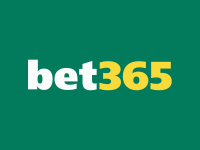Horse Racing Betting US: Tips, Strategies, & Best Bets

Do you find horse race betting a complicated topic? Fret not, this article will take you through the essential aspects of horse race betting, and prepare you to dominate the industry.
Becoming an expert on horse race betting odds and betting systems is the difference between profits and losses. The first concept to cover is a brief history of horse race betting in the United States and how it works.
Key Takeaways
- Understand the history of horse race betting in the US.
- Get a grip on horse racing odds and what they mean.
- Learn popular strategies and betting systems for horse racing.
Navigating Around Horse Racing Betting in the US
Horse racing was first introduced to the US during the colonial period, as British settlers continued the sport in the New World. Major tracks began popping up all over the country in the 1800s, and the sport was in full force. Betting on horse racing did not have the same timeline and did not begin until 1908 when parimutuel* betting became the norm.
*Parimutuel betting is where bets are pooled together and odds and its subsequent payoffs are calculated by the total in the pool and the bet amount.
Horse racing is an extremely exciting event, with spectators taking in a full day of races of all types and spectacular performances from horses and jockeys alike. The turn into the home stretch is a moment second to none in sports and offers a scintillating event to witness.
Horses are speeding down the track up to 40 miles per hour (64 km/h) vying for a win!
Is Horse Racing Betting Legal in the US?
In the United States, the legality of betting on horse racing and sports betting varies by state. Federal regulations set certain guidelines, but individual states have the authority to legalize, regulate, or prohibit betting within their borders.
Federal Laws:
- Interstate Horse Racing Act (1978): Allows betting on horse races across state lines where it’s legal.
- Professional and Amateur Sports Protection Act (PASPA, 1992): Initially banned sports betting nationwide, but was overturned by the Supreme Court in 2018, allowing states to legalize it.
State Regulations:
- Each state has its laws regarding the legality, regulation, and taxation of horse racing and sports betting.
- Online betting is also subject to state-specific rules and can differ from in-person betting regulations.
States Where Online Horse Racing Betting Is Legal
Essentially, online horse racing betting is legal in the states that offer legal online sports betting. Here is the list:
- Alabama
- Arkansas
- California
- Colorado
- Connecticut
- Delaware
- Florida
- Idaho
- Illinois
- Indiana
- Iowa
- Kansas
- Kentucky
- Louisiana
- Maryland
- Massachusetts
- Michigan
- Minnesota
- Montana
- New Hampshire
- New Jersey
- New York
- North Dakota
- Ohio
- Oklahoma
- Oregon
- Pennsylvania
- Rhode Island
- South Dakota
- Tennessee
- Texas
- Vermont
- Virginia
- Washington
- West Virginia
- Wyoming
How Do I Bet on Horse Racing?
You can bet on horse racing in person at a track or online using a horse racing betting site. My family was always interested in horse racing and would go to the local track many times each season to enjoy the sport. That is how I got started on betting on horse racing.
Selecting a Horse Racing Betting Site
There are several key factors to consider when determining which horse racing betting sites you should use. Let’s review those factors and go over how to create an account.
- Legality and Licensing: Ensure the site is legally authorized and licensed to operate in your state. This ensures compliance with state laws and protection for your funds and personal information.
- Reputation and Reviews: Look for sites with a strong reputation and positive user reviews. Check for endorsements from industry experts and ratings on trusted review platforms.
- User Experience: The site should offer a user-friendly interface with easy navigation, fast loading times, and compatibility with both desktop and mobile devices.
- Betting Options: A good site should offer a variety of betting options, including win, place, show, exacta, trifecta, and more. They should also cover a wide range of races and tracks.
- Choosing a Legal, Reputable Site: Unlike sketchy offshore sportsbooks, legal sites use advanced security measures to protect your personal and financial information. Licensed sites are regulated to ensure fair play and reliable payouts. Reputable sites offer mechanisms for resolving disputes and ensuring customer satisfaction.
Creating an Account
- Sign Up: Click on the “Sign Up” or “Register” button, typically located at the top of the homepage.
- Enter Personal Information: Provide required details such as your name, address, date of birth, email, and phone number. Ensure all information is accurate. Create a username and password & verify identity.
- Set Up Payment Methods: Add your preferred payment method for deposits and withdrawals. Ensure the method is secure and convenient for you.
- Deposit Funds and Start Betting: Log in to your new account and deposit funds using your chosen payment method. Once your account is funded, you can start placing bets on available horse races.
Understanding Horse Racing Betting Odds
Let’s see all the different types of horse racing odds available:
Types of Odds
- Fractional Odds (UK style)
- Example: 5/1 (read as “five to one”).
- Calculation: If you bet $10 at 5/1, you win $50 ($10 x 5), plus your $10 stake, totaling $60.
- Decimal Odds (European style)
- Example: 6.00.
- Calculation: If you bet $10 at 6.00, you receive $60 ($10 x 6).
- Moneyline Odds (American style)
- Example: +500 or -200.
- Positive Moneyline indicates how much profit you make on a $100 bet.
- Negative Moneyline indicates how much you need to bet to win $100.
- The horse with the lowest odds is the favorite (considered most likely to win).
- Higher odds indicate underdogs (less likely to win, but offer higher payouts if they do).
Odds determine how much you can win from a bet. Comparing odds from different bookmakers can help you find the best value for your bet.
Once you have chosen what bet or bets you want to make, find the race on your site and make your choices. You can do this by selecting what type of bet you want to place, and then entering the amount for your bet. You can add numerous bets onto your slip before confirming your bet on the site.
Most Popular Types of Horse Racing Bets
Betting on horse racing offers various ways to bet on a race. The most common for placing bets on horses you think will finish in the top three, of a race. Other bets can be predicting the order of finishes from first place to fifth place.
Win
A win bet involves betting on a horse to finish first and win the race. This can be challenging to predict, especially in races with eight or more horses. Favorites only win about 33% of the time, meaning two-thirds of races end in upsets. Even the best jockeys win just 15%-20% of their races, highlighting the difficulty.
Example: In the 2024 Belmont Stakes, a horse with 17–1 odds won the race, while the favorite, at 9–5 odds, placed third.
Successfully betting on a horse to win requires high confidence and thorough research of the race and its participants.
Place
A place bet involves picking a horse to finish first or second. It’s a solid option if you’re confident that the horse will achieve a high finish, with a chance of winning. This bet is ideal when a horse stands out due to factors like record, race history, trainer, or jockey. Place bet odds are calculated by dividing the total pool of bets by the amounts wagered on the favorite and your chosen horse to place.
Show
A show bet involves choosing a horse to finish in the top three, also known as “in the money,” since the top three finishers earn a share of the race purse. While show bets offer lower odds compared to place or win bets, they can still be profitable. This option is ideal if you’re confident a horse will finish high but prefer not to predict the exact order.
Quinella
A quinella bet involves picking the top two finishers in a race. Unlike other bets, the order doesn’t matter as long as both horses finish in the top two. You can also choose three horses for this bet, though it will cost more. Quinella is one of the simpler exotic bets, making it a good choice for beginners in horse race betting.
Exacta
An exacta bet requires picking the top two finishers in the exact order, making it riskier than a quinella but with higher potential rewards. Variations like box and key bets offer more flexibility. A box bet removes the need to predict the exact order, while a key box bet allows you to pick one horse to finish in the top two and several others to fill the remaining spot.
Fun fact: A $2 Exacta bet on the 2012 Kentucky Derby paid $981!
Trifecta
A trifecta bet involves picking the top three finishers in the exact order, making it a challenging but rewarding option. The higher risk is balanced by the potential for significant payouts.
For more flexibility, you can box a trifecta, allowing the three selected horses to finish in any order. This reduces the difficulty and still offers good returns.
Fun Fact: A $1 Trifecta bet on the 2024 Preakness Stakes paid out $183.
Superfecta
A superfecta bet requires picking the top four finishers in exact order, making it one of the most challenging and exotic horse racing bets. The odds of winning are slim, but the potential payouts are huge.
Fun fact: A $1 Superfecta bet on the 2024 Preakness paid out $749.
You can also box a superfecta, allowing the four horses to finish in any order. However, a four-horse box costs $24 due to the 24 possible combinations. Despite the difficulty, superfectas are attractive because of their low cost and high reward potential.
Daily Double
The daily double involves betting on the winners of two different races. It offers more value than separate win bets since there’s only one prize pool deduction. This popular wager is a favorite among bettors and adds an extra layer of excitement to the racing experience.
Pick-3
Pick-3 is the daily double but picking three winners of three races opposed to two. Like a parlay in other sports, this bet increases the odds and potential payouts but also the difficulty. Successfully picking three winners requires careful research and strategy, making it a challenging yet rewarding option for bettors.
Pick-4
Pick-4 bets are choosing four winners of four separate races, taking the next step from a pick-3. From pick-4 to pick-6 bets, they become long-shot type bets that are not necessarily profitable over time but can yield massive payouts if one of them is a winning ticket.
Pick-5
Pick-5 is picking five winners of five races, a rare bet to win but a fun one to make. Another detail with the pick-3 through 6 bets is that you have to pick consecutive races at whichever number you choose. Pick-5 means five straight races picking their winner. That is an extra layer that makes it more difficult to create a winning ticket.
Pick-6
The final and biggest pick type of them all, the pick-6 encompasses picking six straight winners of six different horse races. This pick gets bettors involved in over half of the races at the track in a given day in one bet.
The rewards can be massive, as shown by a Gulfstream Park bettor who won $1.2 million in January 2022 and another who won $1.1 million at Churchill Downs in 2008.
What Is the Best Horse Race Bet for Beginners?
Start with place and show bets, which focus on one horse per race and minimize variables. Avoid more complex bets like win, pick-3 through pick-6, and superfecta until you gain more experience.
Starting with simpler bets not only helps you learn but also build your skills and instincts. As you progress, you can gradually explore riskier bets like exacta, trifecta, and eventually, pick-5 or superfecta.
Let’s go through each bet type and categorize its difficulty:
| Bet Type | Level of Difficulty | Explanation |
|---|---|---|
| Win | Intermediate | Win bets are not impossible, but a beginner will struggle trying to single out a horse to win a race. |
| Place | Beginner | Place bets can be correctly made by any level of horse race bettor, picking one horse to finish in the top 2. |
| Show | Beginner | Similar to place bets, show bets are fundamental levels of horse race betting, and are easy to understand for beginners |
| Quinella | Beginner | Quinella allows for bettors to pick two horses to finish at the top of the race |
| Exacta | Intermediate/ Expert | Exacta bets are difficult in the traditional sense. Box and key exacta bets can give bettors flexibility, but they still require good experience. |
| Trifecta | Expert | Predicting the top three finishers of a race requires expert level knowledge of the sport and the details of each race: horses, jockeys, track conditions, etc. to make winning picks |
| Superfecta | Expert | Predicting the top three finishers of a race requires expert-level knowledge of the sport and the details of each race: horses, jockeys, track conditions, etc. to make winning picks |
| Daily Double | Intermediate | Daily Doubles expand the bet to multiple races, but picking the winner of two races can at times not need expert knowledge. However, predicting two winners is still difficult. |
| Pick-3 | Expert | Getting into the hardest bets to win and the highest payouts, pick-3 are just the start of the most difficult bets in horse racing. |
| Pick-4 | Expert | Picking four consecutive race winners is extremely difficult. |
| Pick-5 | Expert | Normally, bettors put a couple of bucks or less on pick-5s because of how rare they win. |
| Pick-6 | Expert | Pick-6 winning tickets are basically just winning the lottery. It is such a rare event that any level of knowledge cannot even give a bettor full confidence. |
Horse Racing Betting Systems Explained
What is the best system for horse race betting? There are several ones to follow and utilize in your betting routine. We will review each and help you determine which system best fits you, or what aspects of each betting technique you can take and put into your strategy.
Dutching System
Dutch betting centers around covering multiple outcomes in one race. The most common way to do this is by betting on two horses to win in one race. Typically, these horses will have similar odds and on paper are a step ahead of the rest of the field. This way you can back two or three horses but still have good payouts even if one doesn’t win the race.
Example:
- Horse A: 2/1 odds
- Horse B: 3/1 odds
- Horse C: 4/1 odds
→ If you bet $100 on these three horses total and any horse wins, you win $225 with a $125 profit.
This system is a way to provide a safety net for bettors who cannot decipher which horse will win outright. It’s a way to cover multiple bases and not have your eggs all in one basket.
If you’re interested in Dutch betting, then you’ll find our Dutching calculator valuable.
Horse Racing Each Way Betting
Each way betting consists of picking a horse to win and place, covering different outcomes while expecting the horse to race well. You can choose the place bet to be fifth or better, depending on your judgment.
Example:
- Horse A odds to win: 10/1
- Horse A odds to finish top 3: ¼
→ A $10 bet each way has a return of $110 for a win and $35 for place, guaranteeing profit for either outcome.
This system is great for finding horses who stand out in a race and look to be a comfortable top finisher in the race.
80-20
80/20 betting is a more specific type of Dutch betting, where 80% of a stake goes to the favorite and the remaining 20% can be used in different ways to cover another outcome of the race.
For the 20% stake, a bettor can choose an underdog or horse with high payouts or a horse to finish second or third. This decision hangs on the dynamics of each race and what each bettor is comfortable placing their money on.
Example 1:
- Total Stake: $10
- Favorite Horse odds: 3/1, $8 bet to win
- Underdog horse odds: 17/1, $2 to win
- Payouts if favorite wins: $22
- Payouts if Underdog wins: $26
Example 2:
- Total Stake: $20
- Favorite horse odds: 5/1, $16 bet to win
- Other horse to place: 7/4, $4 bet to place
- Payouts if favorite wins: $76
- Payouts if horse places: -$9
- Payouts if both happen: $87
The 20% bet should be something more profitable such as an exacta box or trifecta box, taking on more risk for a small stake but having a high payout.
Laying the Favorite
Laying the favorite is a different system than the rest above, where a bettor picks the favorite to place anywhere except first.
The key to this system is finding a weak favorite, whether that means close odds with the rest of the field, or the odds are changing from horse to horse before post time.
Many times, when the odds are close between more than one horse to win, the market does not believe a horse stands out as the favorite. This can be a sign to bet against the favorite winning.
Example:
- Favorite odds 4/1
- Bettor lays $50 on favorite to lose
- Payout if favorite loses: $50
- Losses if favorite wins: $200
On most occasions, laying the favorite is not profitable on its own and takes on a lot of risk. This system is utilized for specific situations where odds are close, and the favorite is not strong.
Major Horse Racing Events to Bet On
In the United States, each racing season brings multiple major races to bet on. Let’s look at each and examine their significance in the sport:
- Kentucky Derby
- Preakness Stakes
- Belmont Stakes
- Breeders Cup
Kentucky Derby
The Kentucky Derby, held at Churchill Downs in Louisville, Kentucky, is the premier horse race on dirt in the US. It covers 1 ¼ miles and kicks off the Triple Crown. Known as “the most exciting two minutes in sports,” the Derby has drawn over 150,000 attendees annually since its inception in 1875.
In 2022, 80/1 long shot Rich Strike pulled off a major upset to win the $3 million prize. The fastest time was set by the Secretariat in 1973 at 1:59.4. The Derby remains one of the biggest spectacles in sports, with $198.3 million wagered on the race.
Preakness Stakes
The Preakness Stakes, the second leg of the Triple Crown, is held at Pimlico Race Course in Baltimore, MD. Covering 1 3/16 miles on dirt, it began in 1873 and is named after the first colt to win the race, Preakness. The winning horse is traditionally draped in yellow flowers, resembling Maryland’s state flower, the Black-eyed Susan.
Legendary trainer Bob Baffert holds the record with 8 Preakness wins. The 150th Preakness will take place in May 2025.
Belmont Stakes
The Belmont Stakes, held at Belmont Park in Elmont, New York, is the final leg of the Triple Crown. Dubbed “The Test of Champions,” this 1.5-mile race is the oldest of the three, dating back to 1867. It’s known for its rich New York traditions, including iconic music. Only 13 horses have won all three Triple Crown races, while 23 have fallen short at Belmont, underscoring the challenge of this historic race.
Breeders Cup
The Breeders’ Cup is a prestigious series of races featuring the best Grade I events outside the Triple Crown. Established in 1984 as a year-end championship, it expanded to a two-day event in 2007 with a purse of around $25 million, making it the richest turf festival globally.
The Cup hosts 10–14 races each year on dirt and turf and rotates between top tracks like Santa Anita Park, Churchill Downs, Belmont Park, and Gulfstream Park. The next two years will see the event held at Del Mar Thoroughbred Club in San Diego, California.
Horse Racing Betting Strategies I Live By
Betting on horse races can be both exciting and challenging. Here are five strategies to consider:
1. Handicapping
- Research: Study the horses, jockeys, trainers, and track conditions. Look at past performances, racing styles, and the horse’s form.
- Value Betting: Bet on horses that you believe are undervalued by the public. This requires a deep understanding of the race and the odds.
2. Betting Against Favorites
Undervaluation: Favorites often attract more bets, making their odds lower. If you spot a strong contender with higher odds, betting against the favorite might yield better returns.
3. Bankroll Management
- Bankroll: Best bankroll management practices require that you set a budget for how much you’re willing to lose and stick to it. Don’t bet more than 5-10% of your bankroll on a single race. Avoid chasing losses and be prepared to walk away when you’re ahead.
- Finding horse racing betting bonuses: Bonuses can supplement your bankroll and allow you to make riskier, higher payout bets.
4. Following Sharp Money
Track Smart Money: Pay attention to large, late bets that can indicate insider knowledge or professional bettors. Adjust your bets based on where the smart money is going, but be cautious, as this can be difficult to track accurately
5. Focus on Specific Tracks or Races
Gain deep knowledge: Of a specific track, race type, or class of horse. This allows you to become an expert in that area and make more informed bets. Consistency and familiarity with specific conditions or race types can lead to more successful betting.
6. Experts’ picks
The bonus strategy and perhaps, the most important one, follow the expert’s horse racing betting picks! You can easily do so by following professional bettors on their social media accounts. The biggest perk here? It is 100% free!
Live Horse Racing Betting
Live horse race betting refers to placing bets on a horse race after it has started and while it is still ongoing. Here are some key differences in live betting compared to pre-match betting.
Odds Movement
Odds fluctuate rapidly during the race, reflecting the real-time chances of each horse. For instance, if a horse unexpectedly takes the lead, its odds might shorten (decrease), while the odds of other horses lengthen (increase).
Betting Strategy
Strategy involves watching the race closely and reacting quickly to changes. It’s more dynamic, as you can adjust your bets based on how the race is playing out. This might include hedging a bet (betting on multiple outcomes to reduce risk) or capitalizing on sudden changes in a horse’s performance.
Information and Decision-Making
Decisions are made in real time, requiring quick thinking and the ability to interpret what’s happening on the track. This could include noticing a horse running strongly or identifying a favorite that is struggling early in the race.
Joining the Conversation: Horse Racing Betting Forums
Joining betting forums is a fantastic way to enhance your horse racing betting experience, whether you’re a seasoned bettor or just starting out. Engaging with a community of like-minded individuals can offer several key benefits that can improve your betting strategies and overall enjoyment of the sport.
Access to Collective Knowledge
Betting forums bring together people with various levels of expertise and different perspectives. You can learn from those who have years of experience, understand different racing circuits, or specialize in certain types of bets.
Real-Time Tips and Analysis
In a forum, you can get real-time tips and analysis from other members, especially useful for live/in-play betting.
Forums are a place where you can share your betting experiences, both good and bad. Discussing what went right or wrong in your bets helps you learn from your mistakes and replicate successful strategies.
So, Are You Ready for Some Horse Racing Betting Tonight?
Horse race betting is a massive industry with a rich history and numerous ways to bet.
In the US, several horse racing betting sites exist with easy-to-maneuver websites and information to get you started on your betting journey. The many strategies and betting systems mentioned in this article can help you change the way you bet on horse racing for the better.



